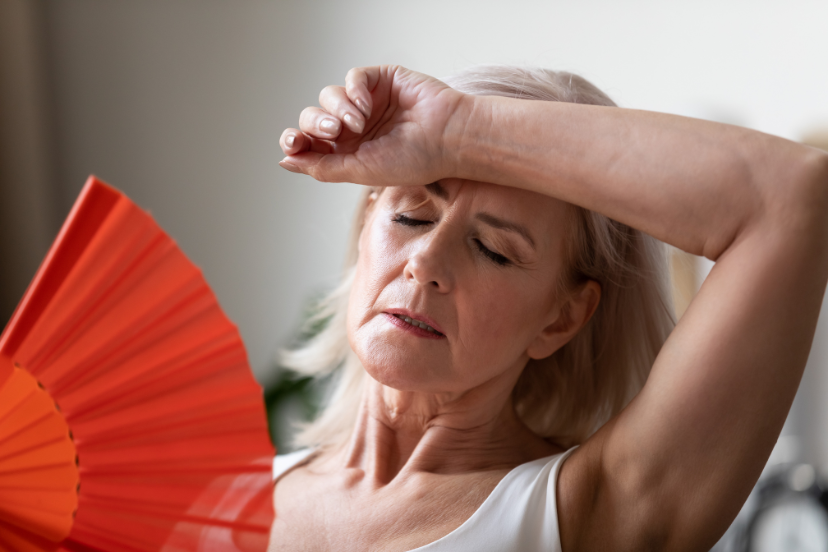Menopause Osteoporosis: Bone Health After Menopause
Introduction: Understanding Menopause Osteoporosis
Exploring Menopause and Bone Health
Menopause marks a significant stage in a woman’s life, accompanied by hormonal changes that affect bone density and increase the risk of osteoporosis.
The Link Between Menopause and Osteoporosis
During menopause, estrogen levels decline, leading to accelerated bone loss and increased susceptibility to fractures and osteoporosis.
Risk Factors for Menopause Osteoporosis
Age and Menopausal Status
The risk of menopause osteoporosis increases with age and postmenopausal status. Early menopause or surgical menopause can also elevate risk factors.
Hormonal Changes
Declining estrogen levels during menopause play a pivotal role in bone health. Estrogen helps regulate bone turnover and maintain bone density.
Symptoms and Signs of Menopause Osteoporosis
Bone Fractures
Fractures, especially in the spine, hips, and wrists, are common indicators of osteoporosis. Height loss and stooped posture may also signal bone density loss.
Bone Density Testing
Dual-energy X-ray absorptiometry (DXA) scans are used to measure bone density and assess the risk of fractures in menopausal women.
Prevention and Management Strategies
Calcium and Vitamin D Supplementation
Adequate intake of calcium and vitamin D is essential for maintaining bone health. Supplements may be recommended if dietary intake is insufficient.
Weight-Bearing Exercises
Regular weight-bearing exercises, such as walking, dancing, and resistance training, help stimulate bone growth and improve bone density.
Lifestyle Modifications for Bone Health
Smoking Cessation
Smoking accelerates bone loss and increases the risk of fractures. Quitting smoking is crucial for preserving bone density and overall health.
Limiting Alcohol Consumption
Excessive alcohol consumption weakens bones and contributes to bone loss. Moderation or abstaining from alcohol helps protect bone health.
Nutritional Strategies for Menopausal Women
Incorporating Bone-Friendly Foods
Include calcium-rich foods like dairy products, leafy greens, and fortified foods in your diet to support bone health during menopause.
Protein Intake
Adequate protein consumption is vital for bone health and muscle maintenance. Incorporate lean proteins such as poultry, fish, beans, and legumes into your meals.
FAQs: Addressing Common Concerns
1. Can menopause osteoporosis be prevented?
While menopause osteoporosis cannot be entirely prevented, lifestyle modifications and appropriate interventions can help reduce the risk of fractures and maintain bone health.
2. What age does menopause osteoporosis typically occur?
Menopause osteoporosis can occur in women after menopause, usually around the age of 50 or older, but can also affect younger women who experience early menopause.
3. Are hormone replacement therapies effective in preventing menopause osteoporosis?
Hormone replacement therapy (HRT) may help prevent bone loss and reduce fracture risk in menopausal women, but it is not suitable for everyone and carries potential risks.
4. How often should menopausal women undergo bone density testing?
The frequency of bone density testing depends on individual risk factors and medical history. It is typically recommended for menopausal women at increased risk of osteoporosis.
5. Are there natural remedies for managing menopause osteoporosis?
In addition to lifestyle modifications, natural remedies such as herbal supplements and acupuncture may complement conventional treatments, but their efficacy varies.
6. Can menopausal women engage in high-impact exercises to prevent osteoporosis?
High-impact exercises should be approached with caution, especially for women at risk of fractures. Consultation with a healthcare provider is recommended to determine the appropriate exercise regimen.
Conclusion: Empowering Women’s Bone Health During Menopause
Navigating menopause osteoporosis requires awareness, proactive measures, and informed decision-making. By implementing preventive strategies and seeking appropriate medical guidance, women can preserve bone health, reduce fracture risk, and embrace vitality during and after menopause. Let knowledge be your ally in the journey towards healthier bones and a brighter future.




